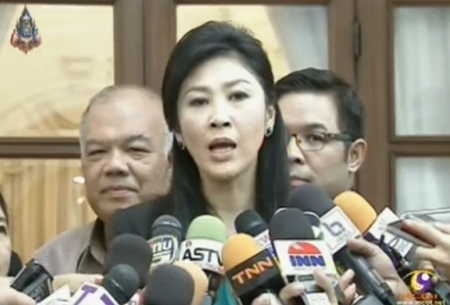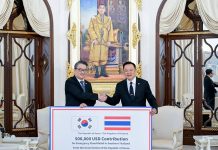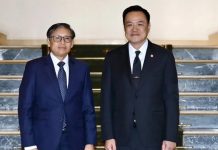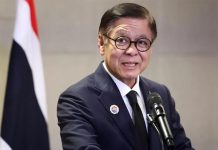BANGKOK, Oct 14 – Prime Minister Yingluck Shinawatra today expressed concern for the safety of political demonstrators at Urupong intersection.
She would not commit as to whether the government would revoke the Internal Security Act (ISA) before the October 18 expiration of the current implementation, but said a decision would not be made unless assessment of the situation showing need is given by the Centre for Administration of Peace and Order (CAPO) and the National Police Bureau.

Police have held preliminary talks with the leaders of the demonstration and told them that their rally had disrupted traffic in the Urupong area, she said.
She gave assurances that the government would try its best to negotiate and said an open area like Urupong was difficult for peace keeping.
“I beg you (protesters) to talk on whatever issues we can discuss,” she pleaded.
Deputy Metropolitan Police Commander Adul Narongsak said police have opened two roads, Sri Ayutthaya and Rajvithi, to ease traffic congestion after sealing off 14 roads in Bangkok’s government districts since the weekend.
Piya Uthayo, CAPO spokesman, said the Bangkok Metropolitan Administration (BMA) was told to see if the three protesting groups in Bangkok were legally granted permission to set up stages and tents to facilitate their demonstrations.
If not, the protesters are liable to legal punishment for breaching the Cleanliness and Public Order Act B.E.2535, and subject to Bt2,000 fine.
The three groups which demonstrated separately in Bangkok are the Network of Students and People for the Reform of Thailand (NSPRT) at Urupong intersection, the People’s Army against the Thaksin Region at Lumpini Park and the Farmers’ Debt Network under the Rama VI expressway.
The CAPO director instructed the Metropolitan police to provide frequent updates on the movement of NSPRT members, he said.




